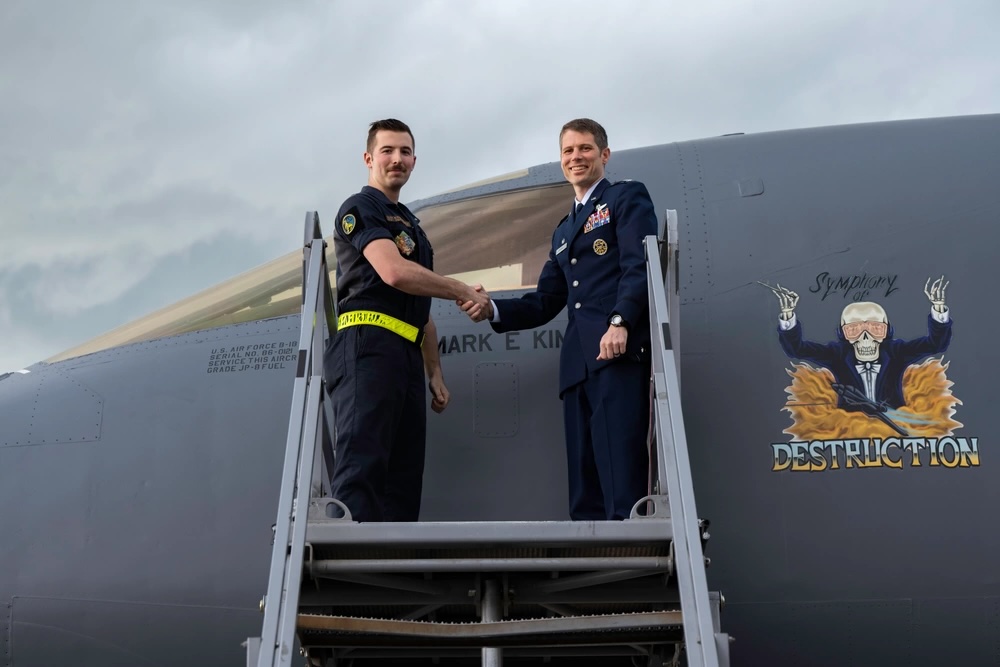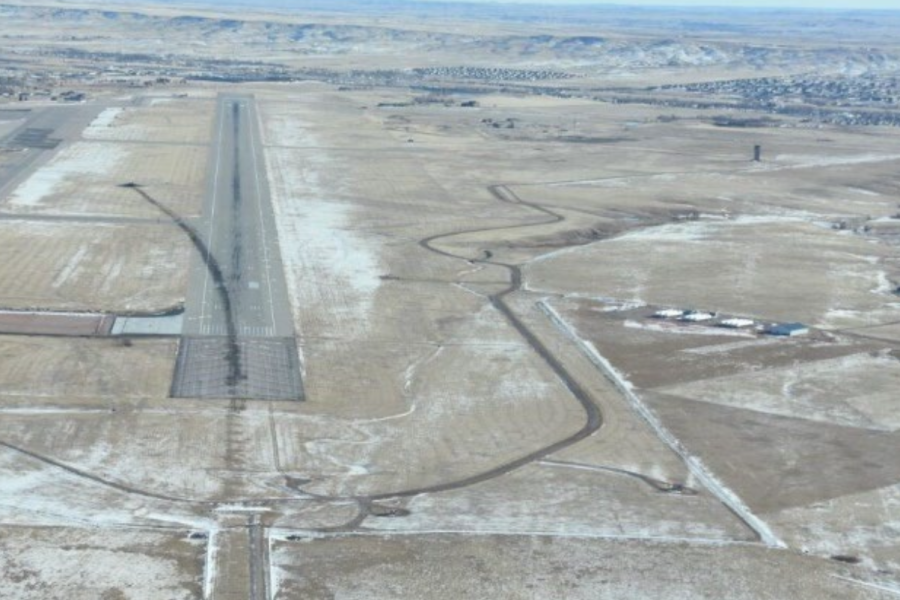The Air Force has relieved the 28th Operations Group Commander for loss of confidence after losing a B-1B Lancer worth nearly half a billion dollars in a January crash at at Ellsworth Air Force Base, S.D.
Col. Mark Kimball was relieved of command by Col. Derek C. Oakley, commander of the 28th Bomb Wing, effective Aug. 2, Air Force Global Strike Command said in a release.
AFGSC cited a “loss of trust and confidence in his ability to command” given the findings of the Accident Investigation Board. The investigation found the unit’s leadership and lax culture were a key cause leading to the crash that destroyed the bomber, callsign FELON 02, on Jan. 4.

The AIB said a cascading—and preventable—series of human errors led to the crash, in which four aircrew members ejected and survived. Two suffered injuries, however, and the aircraft largely disintegrated—a write-off of $450 million.
“This investigation has shown that many failures leading to this mishap were not a one-time occurrence or an aberration,” Col. Erick D. Lord, who led the investigation, wrote in the report. “I have noted that the mishap occurred due to numerous factors, including a culture of noncompliance, widespread deviation from established policy and procedure, and several organizational influences and preconditions.”
AFGSC had hinted when it released its investigation report that action might follow. “The chain of command is in the process of responding to the report and taking the appropriate corrective actions,” the command said in a press release at the time.
More actions could follow. An AFGSC spokesperson declined to comment further when asked on Aug. 2.
The AIB found Kimball prioritized “operational readiness,” which created a dearth in some mid-level leadership positions that help manage the group’s day-to-day functions.
Kimball “focused his assigned aviators on the high-priority [aircrew flight equipment], Wing Weapons, and Weapons and Tactics positions” at the expense of other duties. This led to a lack of assistant directors of operations (ADOs), which overloaded the chain of command. The 28th Operations Group had “an unhealthy organizational culture that permitted degradation of airmanship skills.” The B-1 that crashed was assigned to the 34th Bomb Squadron, part of the 28th Operations Group.
Kimball “underestimated the impact caused by the leadership vacuum and stated that manning decisions resulted in an overall loss of leadership and severing of connective tissue across his stovepiped flights,” the investigation said. “Additionally, without the ADO leadership, the commander and director of operations quickly became overwhelmed with day-to-day decision-making. To remedy this, the [squadron commander] pushed decision-making authority downward to flight commanders and Senior Non-Commissioned Officers.”
Overall, the report found that information about the runway was overlooked, weather briefings were outdated or unavailable, and pre-flight briefings lacked necessary information—just a few of the mistakes. Ultimately, the crew attempted to land in dense fog that reduced visibility below requirements and mismanaged the approach.
The report also found issues in the 28th Operations Support Squadron (28 OSS), part of the 28th Operations Group, which oversees the airspace and airfield at Ellsworth, provides weather forecasts, intelligence analysis, and other key supporting functions.
After the mishap, the commander of the 28th Operational Support Squadron “discovered multiple process and communication breakdowns between the Weather and Airfield Operations flights,” the report said. That commander “largely attributes this breakdown to young and inexperienced Airmen making uninformed decisions and improper documentation and notification procedures.”
The report blamed leadership for its lack of oversight.
“The organizational structure in the 28 OSS fostered inadequate supervision, an inability to identify and communicate airfield hazards properly, and the 28 OSS [commander]’s inability to recognize and control risk properly,” the report said.
Lord’s report said the 28th Operations Group was a ticking time bomb.
“The preponderance of the evidence revealed an ineffective and unhealthy culture, which directly contributed to the mishap,” Lord wrote. “Specifically, the [34th Bomb Squadron’s] overall lack of discipline, inadequate focus on basic airmanship skills, and failure to properly identify and mitigate risk, coupled with the [28th Operations Support Squadron’s] ineffective communication, inadequate program management, and lack of supervisory oversight, set conditions that allowed this mishap to occur by directly leading to the mishap’s cause and its three non-weather-related, substantially contributing factors.”

